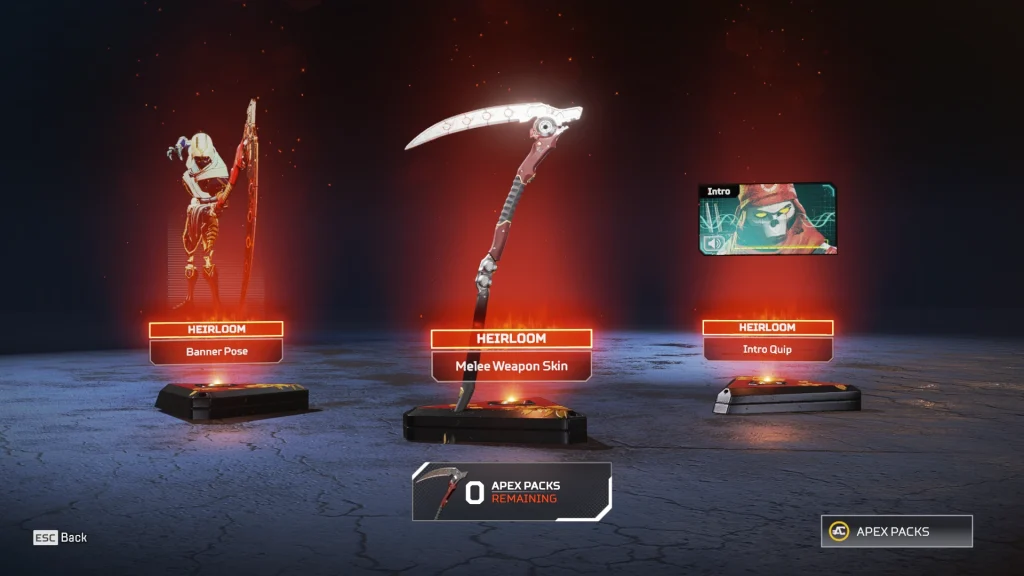“Ridiculous what they charge for things in game”: Apex Legends Players Have a Better Idea of Unlocking Heirlooms but Respawn Just Loves Microtransactions

Apex Legends’ developer, Respawn, is a big fan of microtransactions. Players are required to spend a lot of money in the game to gain exclusive and rare items, including heirlooms, that ideally should be given based on the time spent on the game through leveling up or finishing challenges.

Players are frustrated with the game’s predatory monetization policies that affect children the most. These microtransactions encourage impulsive purchases, and the younger players are the ones who fall prey to this business model.
Heirlooms In Apex Legends Should Be Unlocked Through Natural Progression in the Game

Heirlooms are extremely rare to find; it could sometimes take up to 500 attempts to find them, which in turn makes them one of the most expensive items in the game since players prefer to buy the loot boxes instead. These items are obtained through RNG (random number generation) via lootboxes. This creates a more chance-based system, which is often criticized and considered unfair in a progression-based game.
Not all loot boxes guarantee heirlooms, which in turn compels players to spend more and more until they find one with rare items inside. It is always a gamble with these loot boxes, which is one of the most frustrating parts of this entire revenue generation model laid down by Respawn.
This model paves the way for a pay-to-win strategy to persist and rule over all. You are more likely to get access to better equipment if you spend money on it, which creates an imbalance in the game since not everyone has the purchasing power to buy digital equipment in a free-to-play game. Apex Legends was once a great game, but now it seems like it only wants to promote buying expensive items.
Comment
byu/KillyLonginus from discussion
inapexlegends
Comment
byu/KillyLonginus from discussion
inapexlegends
Comment
byu/KillyLonginus from discussion
inapexlegends
Comment
byu/KillyLonginus from discussion
inapexlegends
In an ideal scenario, a live service game often rewards players with cosmetics like skins, emotes, and buddies for the amount of time they spend on the game. However, microtransactions are the biggest enemy of this model since they imbalance the game and ruin the experience, something that players have found Apex Legends to be guilty of.
Respawn Needs To Find A Better Way For Revenue Generation

The current revenue generation model is not well suited for most of the players since it increases the disparity between people who can and who can’t afford to spend on the game.
Respawn should at least look at other ways to reward heirlooms. The current model is too frustrating for players who are not interested in investing in the game; it only caters to a niche. On top of that, RNG promotes impulsive buying by encouraging players to spend excessively in search of rare items. Respawn has put in great efforts to keep Apex Legends afloat for a long time, and it does not seem like it will be stopping anytime soon.
Respawn should look at alternate ways to offer heirlooms to its players. Players have often proposed tying them to a hero-specific progression system based on the time spent on the game and the achievements unlocked with that character. If not, it could easily offer direct purchase options. Do you think this system is unfair or not? Let us know in the comments below.
This post belongs to FandomWire and first appeared on FandomWire






